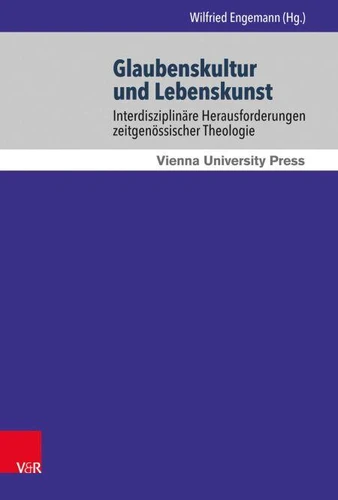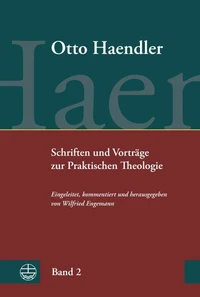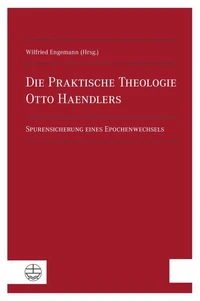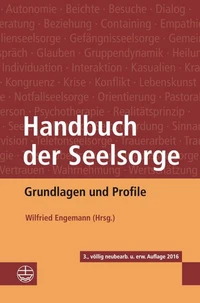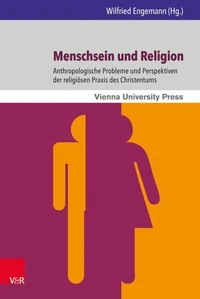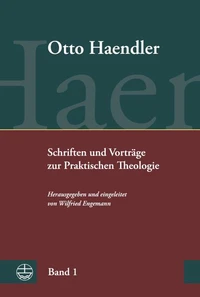Glaubenskultur und Lebenskunst. Interdisziplinäre Herausforderungen zeitgenössischer Theologie
Par : , , , ,Formats :
Disponible dans votre compte client Decitre ou Furet du Nord dès validation de votre commande. Le format PDF est :
- Compatible avec une lecture sur My Vivlio (smartphone, tablette, ordinateur)
- Compatible avec une lecture sur liseuses Vivlio
- Pour les liseuses autres que Vivlio, vous devez utiliser le logiciel Adobe Digital Edition. Non compatible avec la lecture sur les liseuses Kindle, Remarkable et Sony
 , qui est-ce ?
, qui est-ce ?Notre partenaire de plateforme de lecture numérique où vous retrouverez l'ensemble de vos ebooks gratuitement
Pour en savoir plus sur nos ebooks, consultez notre aide en ligne ici
- Nombre de pages304
- FormatPDF
- ISBN978-3-8470-0380-9
- EAN9783847003809
- Date de parution10/12/2014
- Protection num.pas de protection
- Taille2 Mo
- Infos supplémentairespdf
- ÉditeurV&R Unipress
Résumé
Dieser Band behandelt Fragen, die für eine zeitgenössische Theologie von großem Gewicht sind. Die Beiträge stellen die Lebensdienlichkeit der Traditionen, Inhalte und Formen der religiösen Praxis des Christentums in den Mittelpunkt der Betrachtung. Damit kommen anthropologische Prämissen und Perspektiven in den Blick, die auch die Konzeption von Gottesdiensten, die Auslegung biblischer Texte oder das Verständnis menschlicher Freiheit betreffen.
Christliche Theologie muss die Kategorie eines »Lebens aus Glauben« so plausibilisieren, dass sich Menschen nicht vor der Alternative sehen, entweder gerne Mensch oder religiös zu sein, sondern die Erfahrung machen, im Glauben als Mensch zum Vorschein zu kommen. Glaubenskultur und Lebenskunst" (culture of faith and the art of living) and addresses many issues crucial to contemporary theology. Focusing on the life-promoting aspects of traditions, contents and forms of religious practice of Christianity, it highlights anthropological premises and perspectives, which also affect the conception of religious services, the interpretation of biblical scriptures or the understanding of human freedom.
Christian Theology should make the category of "a life of faith" plausible in such a way that people are not forced to choose between enjoying being human or being religious, but experience to appear as human beings through faith. Given the many burdens that Christian culture of faith is charged with - ranging from naïve fundamentalism to a self-destructive religious practice - it is the task of theology - in dialogue with other humanities and life sciences - to make a "life of faith" credible as an ethically reasonable category of human existence that corresponds to human dignity and strengthens human freedom.
Christliche Theologie muss die Kategorie eines »Lebens aus Glauben« so plausibilisieren, dass sich Menschen nicht vor der Alternative sehen, entweder gerne Mensch oder religiös zu sein, sondern die Erfahrung machen, im Glauben als Mensch zum Vorschein zu kommen. Glaubenskultur und Lebenskunst" (culture of faith and the art of living) and addresses many issues crucial to contemporary theology. Focusing on the life-promoting aspects of traditions, contents and forms of religious practice of Christianity, it highlights anthropological premises and perspectives, which also affect the conception of religious services, the interpretation of biblical scriptures or the understanding of human freedom.
Christian Theology should make the category of "a life of faith" plausible in such a way that people are not forced to choose between enjoying being human or being religious, but experience to appear as human beings through faith. Given the many burdens that Christian culture of faith is charged with - ranging from naïve fundamentalism to a self-destructive religious practice - it is the task of theology - in dialogue with other humanities and life sciences - to make a "life of faith" credible as an ethically reasonable category of human existence that corresponds to human dignity and strengthens human freedom.
Dieser Band behandelt Fragen, die für eine zeitgenössische Theologie von großem Gewicht sind. Die Beiträge stellen die Lebensdienlichkeit der Traditionen, Inhalte und Formen der religiösen Praxis des Christentums in den Mittelpunkt der Betrachtung. Damit kommen anthropologische Prämissen und Perspektiven in den Blick, die auch die Konzeption von Gottesdiensten, die Auslegung biblischer Texte oder das Verständnis menschlicher Freiheit betreffen.
Christliche Theologie muss die Kategorie eines »Lebens aus Glauben« so plausibilisieren, dass sich Menschen nicht vor der Alternative sehen, entweder gerne Mensch oder religiös zu sein, sondern die Erfahrung machen, im Glauben als Mensch zum Vorschein zu kommen. Glaubenskultur und Lebenskunst" (culture of faith and the art of living) and addresses many issues crucial to contemporary theology. Focusing on the life-promoting aspects of traditions, contents and forms of religious practice of Christianity, it highlights anthropological premises and perspectives, which also affect the conception of religious services, the interpretation of biblical scriptures or the understanding of human freedom.
Christian Theology should make the category of "a life of faith" plausible in such a way that people are not forced to choose between enjoying being human or being religious, but experience to appear as human beings through faith. Given the many burdens that Christian culture of faith is charged with - ranging from naïve fundamentalism to a self-destructive religious practice - it is the task of theology - in dialogue with other humanities and life sciences - to make a "life of faith" credible as an ethically reasonable category of human existence that corresponds to human dignity and strengthens human freedom.
Christliche Theologie muss die Kategorie eines »Lebens aus Glauben« so plausibilisieren, dass sich Menschen nicht vor der Alternative sehen, entweder gerne Mensch oder religiös zu sein, sondern die Erfahrung machen, im Glauben als Mensch zum Vorschein zu kommen. Glaubenskultur und Lebenskunst" (culture of faith and the art of living) and addresses many issues crucial to contemporary theology. Focusing on the life-promoting aspects of traditions, contents and forms of religious practice of Christianity, it highlights anthropological premises and perspectives, which also affect the conception of religious services, the interpretation of biblical scriptures or the understanding of human freedom.
Christian Theology should make the category of "a life of faith" plausible in such a way that people are not forced to choose between enjoying being human or being religious, but experience to appear as human beings through faith. Given the many burdens that Christian culture of faith is charged with - ranging from naïve fundamentalism to a self-destructive religious practice - it is the task of theology - in dialogue with other humanities and life sciences - to make a "life of faith" credible as an ethically reasonable category of human existence that corresponds to human dignity and strengthens human freedom.

